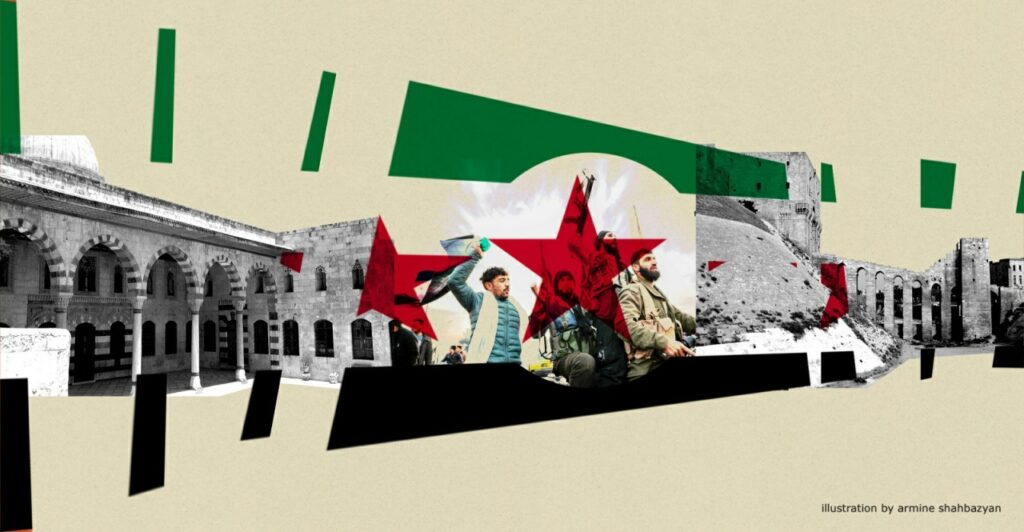Breaking
The Center for Truth and Justice (CFTJ), a U.S.-based human rights organization, delivered a compelling appeal for accountability at the 23rd Session of the Assembly of State Parties to the International Criminal Court (ICC).
In her address to the ICC, Dr. Sarah Babaian vividly detailed Azerbaijani atrocities against Armenians in Nagorno-Karabakh, recounting harrowing acts of torture, starvation and inhumane treatment.
“Soldiers and civilians were forced to crawl like animals, beaten with sharp rods, and starved to death in open-air cages. Women endured unspeakable mistreatment, and families faced unimaginable brutality. These are not scenes from a horror movie but the grim reality faced by Armenians,” she stated.
U.S. Secretary of Defense Austin Welcomes Armenia’s Defense Minister to Pentagon
The two leaders met to discuss the strategic relationship between the U.S. and Armenia, which includes a longstanding partnership between Armenia’s Defense Ministry and the Kansas National Guard.
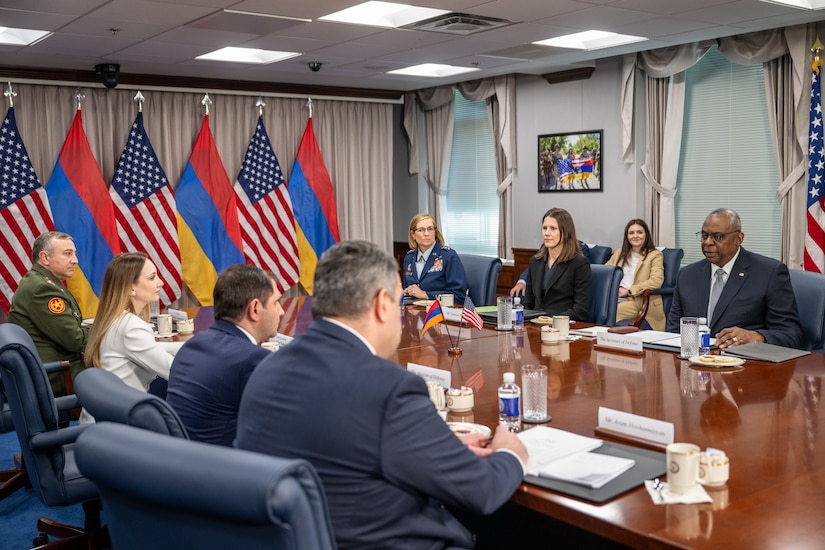
Senators Risch, Shaheen Issue Statement Regarding Violence in Georgia Following Suspension of European Union Membership Accession
U.S. Senators Jim Risch (R-ID), ranking member of the Senate Foreign Relations Committee, and Jeanne Shaheen (D-NH), a senior member of the Senate Foreign Relations Committee, issued the statement regarding the violence in Georgia following the suspension of European Union membership:
“We are very alarmed by the situation unfolding in Georgia where peaceful protest has been met with brute force and violence following the government of Georgia’s unconstitutional decision to disregard the aspirations of the majority of the Georgian people by suspending its European Union membership accession. We stand with the Georgian people who have a right to peacefully protest.”
5 More Azerbaijani Journalists Detained Amid Crackdown On Media Freedom
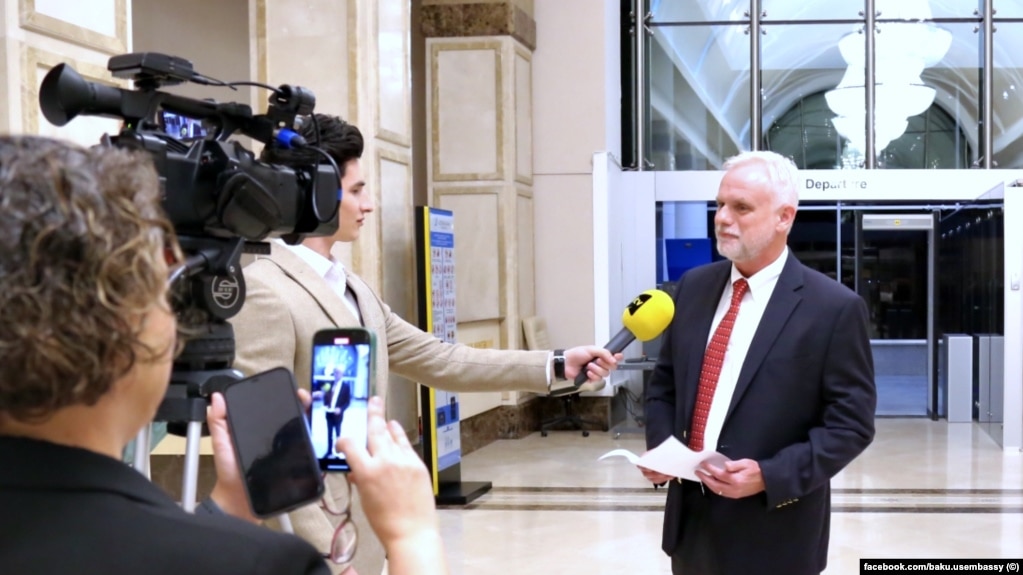
US Senate Committee on Foreign Relations
Senator Van Hollen Raises Question on Using Global Magnitsky Act for Azerbaijan’s Ethnic Cleansing of Nagorno-Karabakh
During the Senate Foreign Relations Committee hearing on the “Implementation of the Global Magnitsky Laws,” Senator Chris Van Hollen asked whether the Act could be applied to address Azerbaijan’s actions in Nagorno-Karabakh.
In response, Adam Keith, Senior Director for Accountability at Human Rights First, stated:
“Yes…In the specific context of Nagorno-Karabakh, some acts in the context of armed conflict might not be… the administration might not be able to use the Global Magnitsky Act to address it. But things that fall outside of that context, including extrajudicial killing of a prisoner, torture, sexual violence, I think any of that conduct would potentially meet the criteria and be an absolutely appropriate use of the tool.”
Azerbaijan’s Ethnic Cleansing in Nagorno-Karabakh and Genocidal Policy

USAID Administrator Samantha Power Again Neglects to Call out Azerbaijan for Human Rights Abuses and Ethnic Cleansing of Nagorno-Karabakh
In her book, A Problem from Hell, Power called out U.S. leaders for failing to tell the truth about genocide: “Why do American leaders who vow ‘never again’ repeatedly fail to marshal the will and the might to stop genocide?”
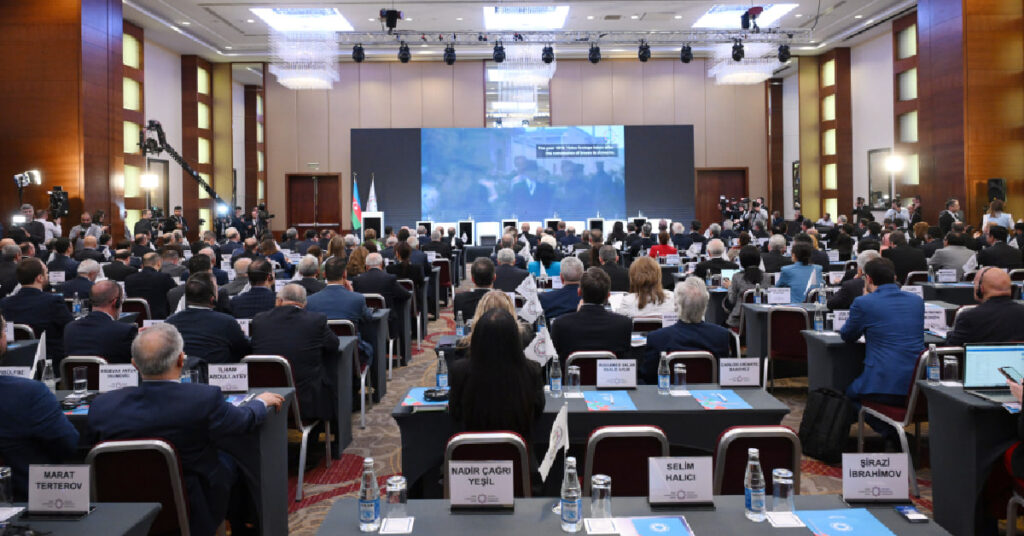
CoE Committee of Ministers Calls on Azerbaijan to Implement ECHR Ruling in Gurgen Margaryan Case
The Committee of Ministers of the Council of Europe (COE) has issued a new decision as part of its monitoring of the implementation of judgments in the case of Makuchyan and Minasyan v. Azerbaijan, concerning the 2004 murder of Armenian officer Gurgen Margaryan by an Azerbaijani serviceman in Budapest
Nagorno-Karabakh NGOs Urge UN, UNESCO to Send Mission Amid Cultural Heritage Destruction
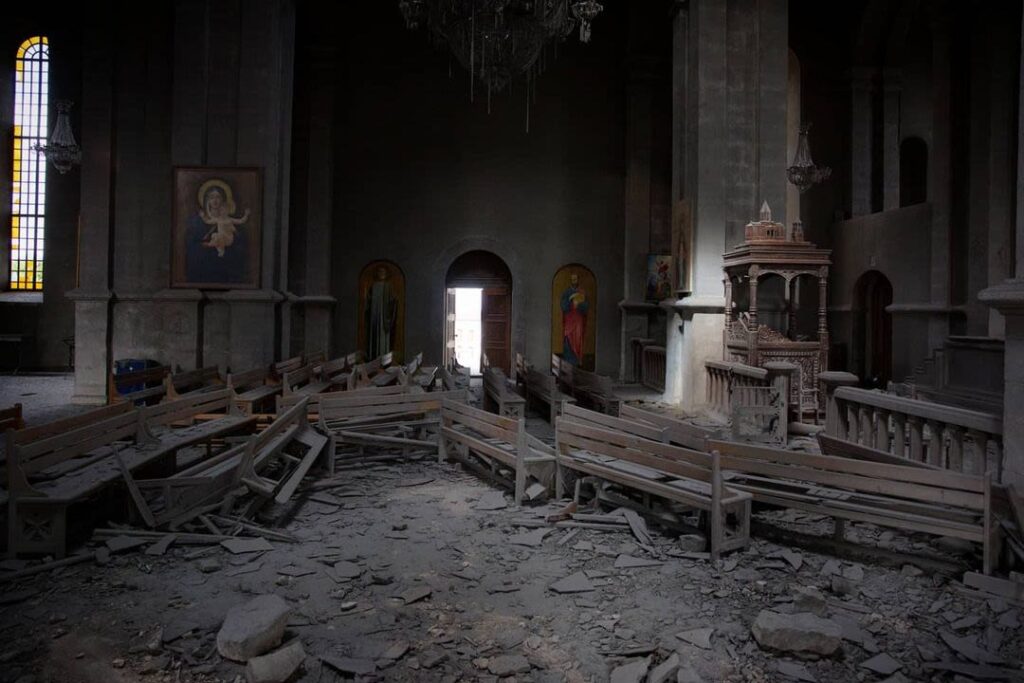
The USA Pledges to Restore and Promote Nagorno- Karabakh’s Written Heritage Preserved in Matenadaran
The Mesrop Mashtots Institute of Ancient Manuscripts has launched a project to restore and promote Nagorno-Karabakh’s written heritage, preserved in the Matenadaran, with $74,000 in funding from the US Ambassador’s Fund for Cultural Preservation. The project highlights manuscripts and archival documents from Armenian medieval monasteries like Gandzasar, Dadivank, and Gtchavank (13th–18th centuries), showcasing Armenia’s rich cultural heritage. Matenadaran Director Ara Khzmalyan thanked the US Ambassador for supporting this significant initiative.
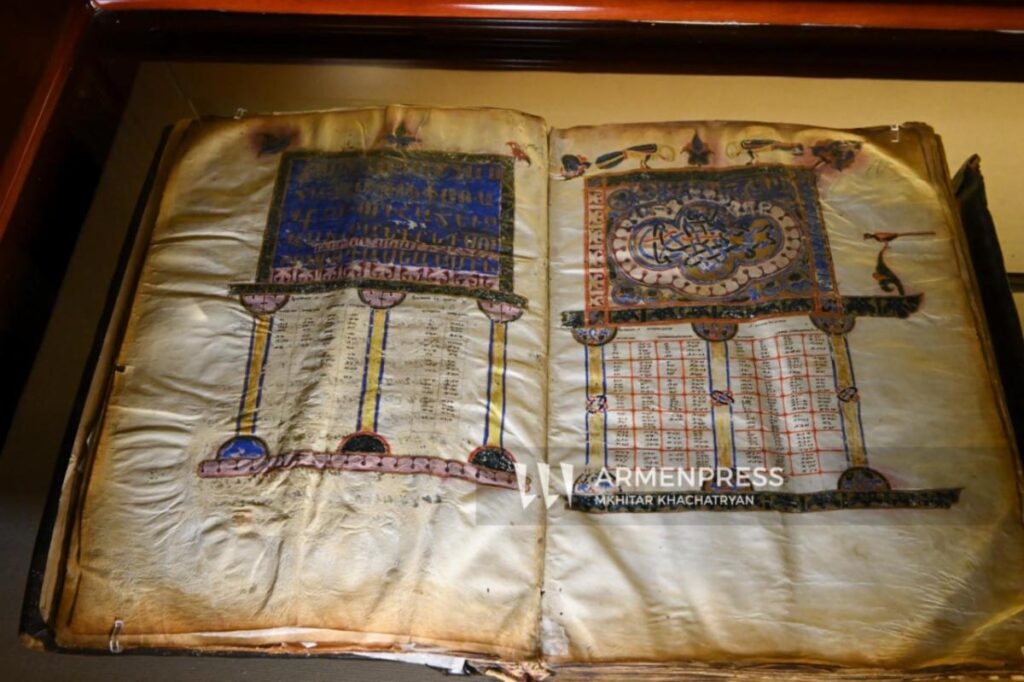
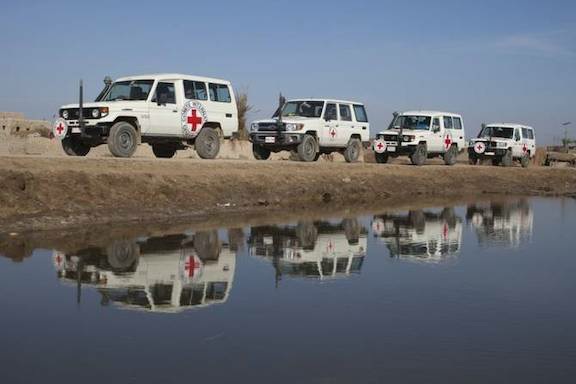
ICRC: 5,000 Missing Persons, Including 1,000 Armenians, in Nagorno-Karabakh Conflict Since 1990s
Distortion of Historical Facts at the Anti-Armenian Conference in Baku
An anti-Armenian conference organized by the “Western Azerbaijan” community, under Azerbaijani authorities’ sponsorship, was held in Baku, with over 100 participants, including representatives from 25 diplomatic missions and Turkey’s former Foreign Minister.
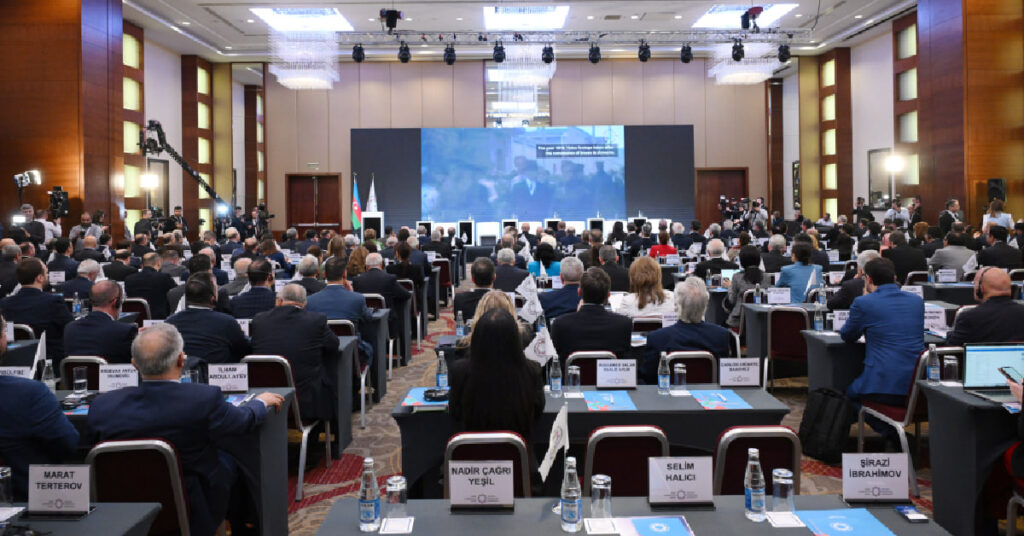
Photos of the week
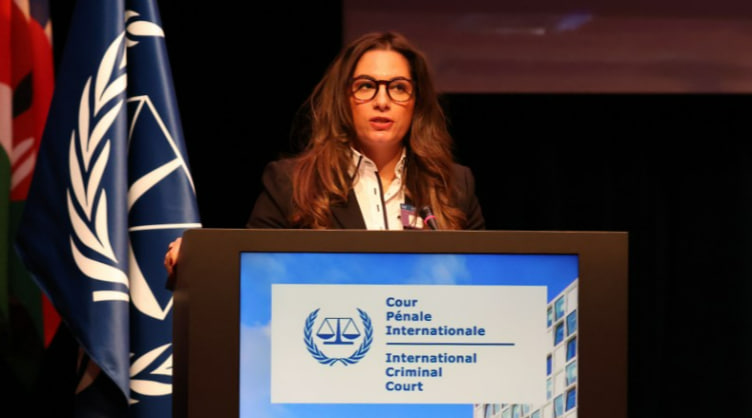
Dr. Sarah Babaian of the Center for Truth & Justice (CFTJ) delivers a historic address at the 23rd Session of the Assembly of State Parties to the International Criminal Court (ICC), marking the first time the Armenian issue has been raised at the ASP.
Photo Courtesy of CICC
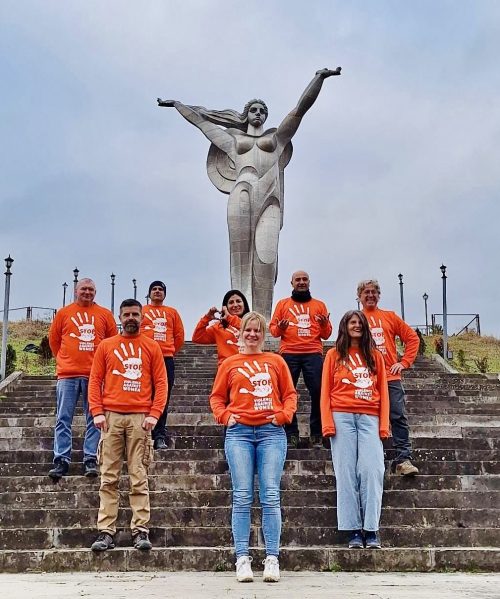
EU Mission in Armenia staffers in Ijevan actively join the 16 Days of Activism Against Gender-Based Violence, standing together to promote awareness and change.
Photo Courtesy of EUMA.
Security
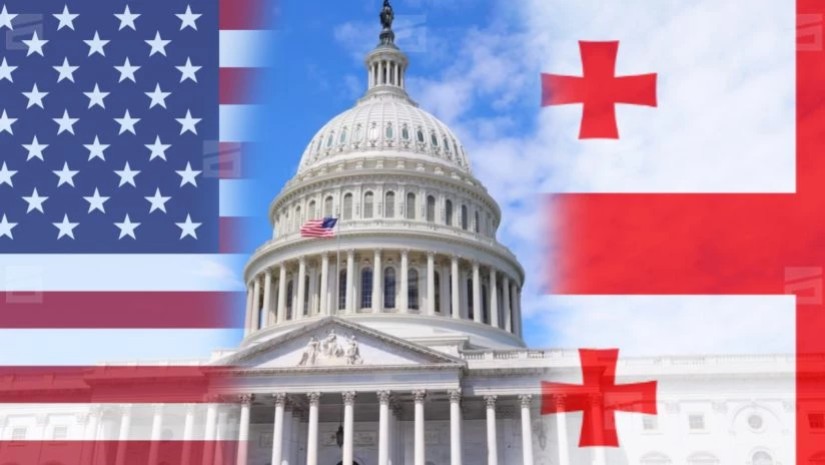
Amid Violence in Georgia, Chair Cardin and Senators Shaheen, Risch, Coons, Graham, Durbin Speak with Georgian President Zourabichvili, a Leading Critic of the Georgian Dream Government, to Discuss Decision to End EU Membership Bid
MFA: Armenia Agreed to Meeting of FMs Mirzoyan, Bayramov with Blinken’s Mediation
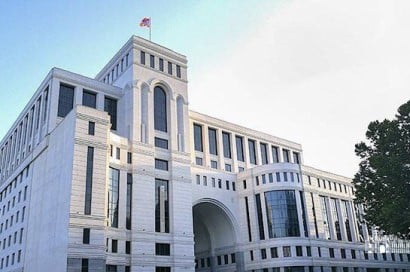
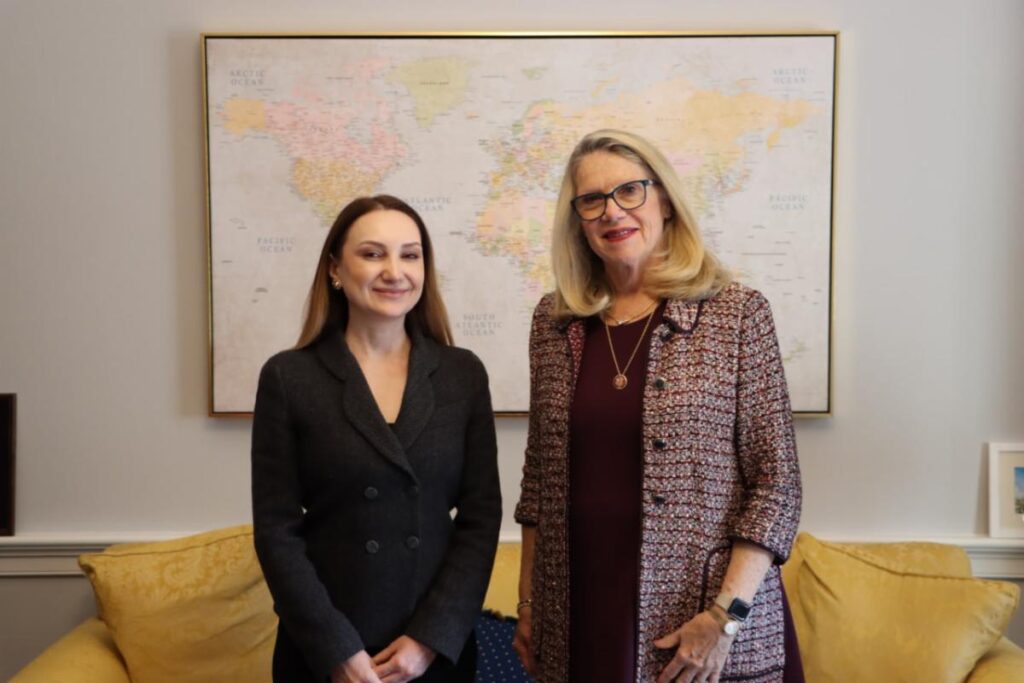
Ambassador Makunts and Congresswoman Miller Discuss Armenian-Azerbaijani Peace Process
Armenian Ambassador to the United States Lilit Makunts has met with Congresswoman Carol Miller (R-West Virginia). Ambassador Makunts and Congresswoman Miller discussed the peace process between Armenia and Azerbaijan and prospects of trade and economic relations in the South Caucasus region, the embassy said in a readout.
Armenia, EU Discuss New Agenda of Partnership
EU-Armenia cooperation is strengthening across all sectors – Kaja Kallas
Central Electoral Commission validates petition on joining EU

Armenia Joins the Freedom Online Coalition
On becoming a member of the FOC, Mr Vahan Kostanyan, Deputy Foreign Minister, said:
“Democracy, rule of law and human rights are absolute values for Armenia and its people. Nowadays, when we all witness the rise of new hybrid threats and digital challenges, it is of crucial importance to unite efforts with like-minded partners aiming at safeguarding human rights and fundamental freedoms proclaimed in the Universal Declaration of Human Rights.”
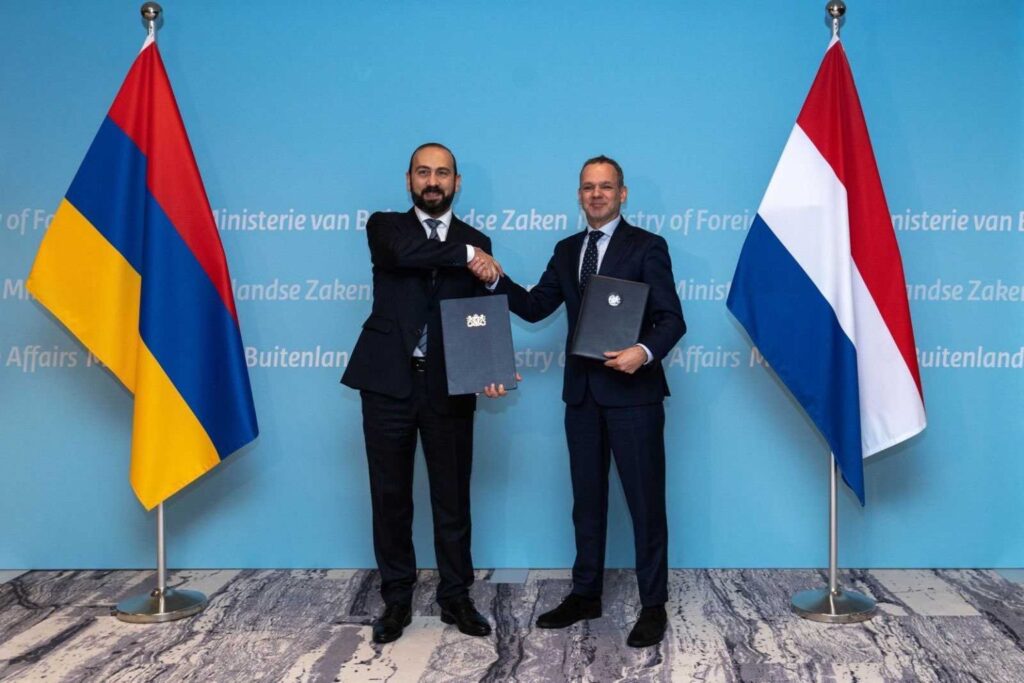
Opinion
Climate Crisis: Finance-Focused Negotiations Fall Short of Expectations of Developing Nations at COP29
By Ruth Green
It wasn’t the start to the COP29 climate talks that anyone expected. When the president of COP29’s host country, Azerbaijan’s Ilham Aliyev, made his opening speech in Baku to welcome delegates, he claimed that fossil fuel resources are a ‘gift from God’ that countries shouldn’t be blamed for bringing to market and took aim at Western media and climate activists as ‘fake news media’.

Azerbaijan v Armenia: Reciprocity and the Temporal Scope of Jurisdictional Clauses in Erga Omnes Partes Proceedings?
By Jane Alice Hofbauer and Philipp Janig
On 12 November 2024, the ICJ issued its judgment on the preliminary objections in the Azerbaijan v. Armenia case. This case, alongside Armenia v. Azerbaijan, concerns alleged violations of the Convention on the Elimination of All Forms of Racial Discrimination (CERD) and is based on the compromissory clause in Article 22 of CERD. While filed after the Second Nagorno-Karabakh War, Azerbaijan’s claims refer to alleged violations dating back to the 1990s.
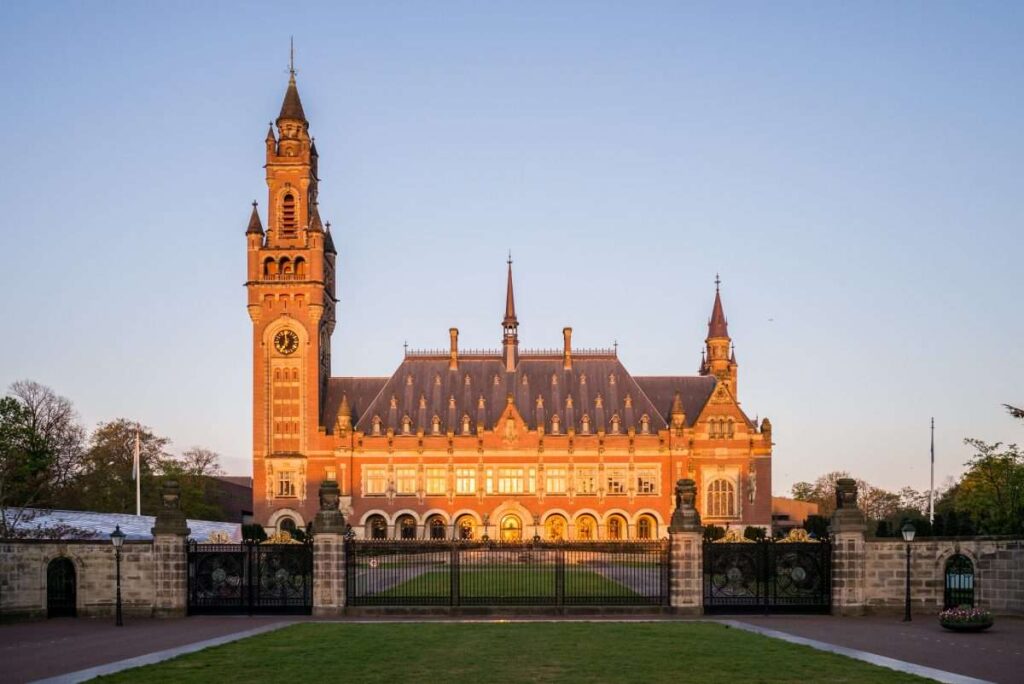
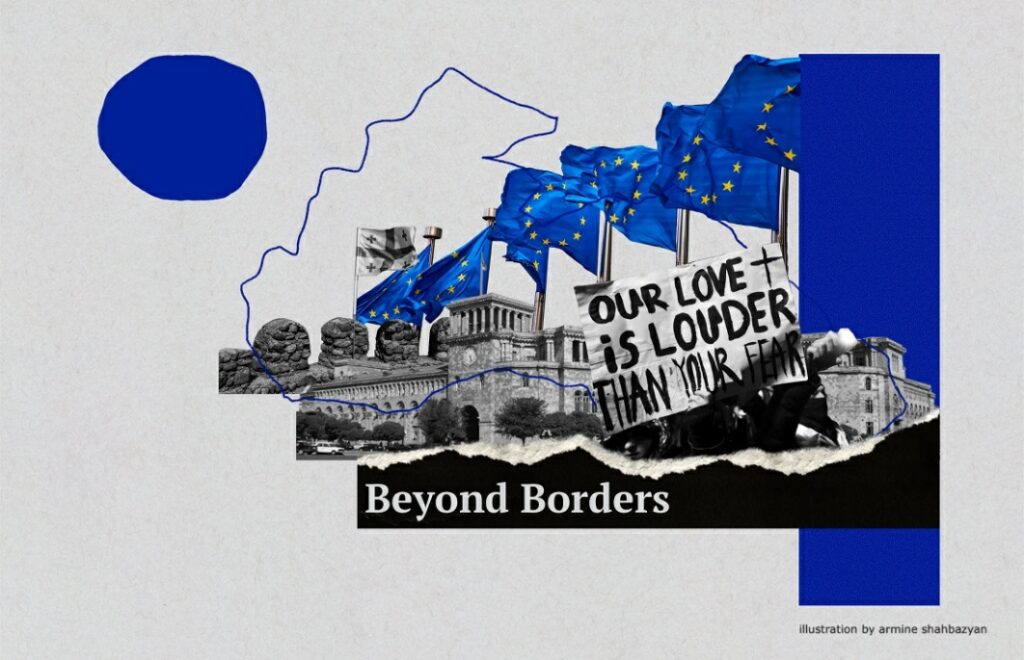
Crisis in Georgia: What It Means for Armenia’s EU Ambitions
By Olesya Vartanyan
The choice before Armenia is clear. Closer ties with the European Union can catalyze democratic growth and economic development while strengthening the country’s position in a precarious region. Yet success hinges on commitment—from politicians, civil society, and the broader public—to persist through challenges and embrace the opportunities ahead.
The Price of Peace Between Armenia and Azerbaijan
By Bence Szechenyi and Ella Chakarian
Now, after Azerbaijan’s most recent offensive in September 2023, following months of blockading the region, Nagorno-Karabakh is fully under Azerbaijani control. Some 100,000 ethnic Armenians who lived there for generations, almost the whole population, were forced to flee for Armenia proper. It is under these conditions that the nations seek to conclude the conflict, cementing that Armenia has lost Nagorno-Karabakh.
A Dark Future for the Armenians of Syria
By Tigran Yegavian
Syria is poised to become a new epicentre of jihad, drawing thousands of recruits from across the globe seeking to make their “hijra.” From Yerevan’s perspective, the urgent question now is how to organize the evacuation of our compatriots, leveraging support from the UN and diplomatic representations operating in Syria.
